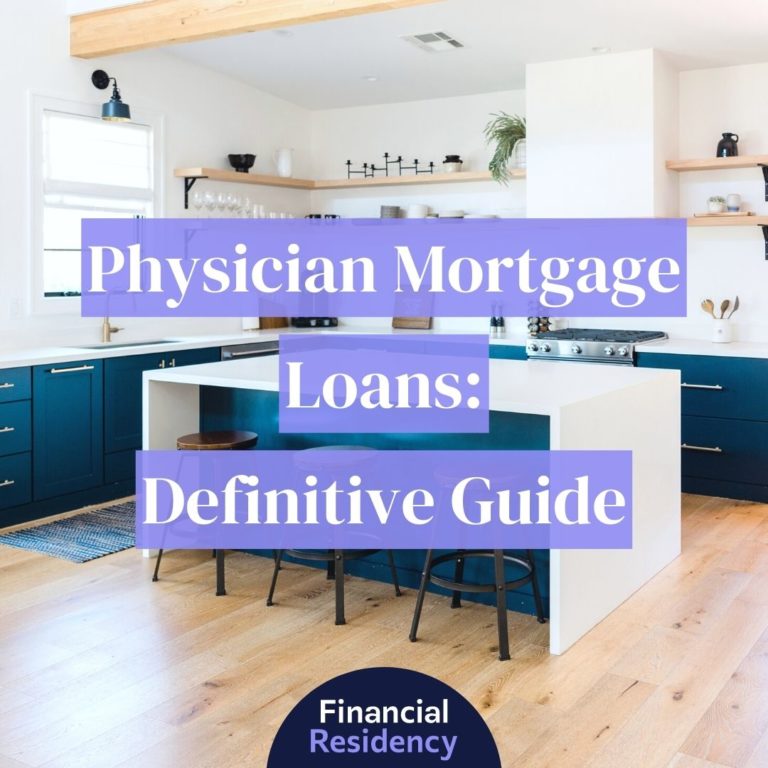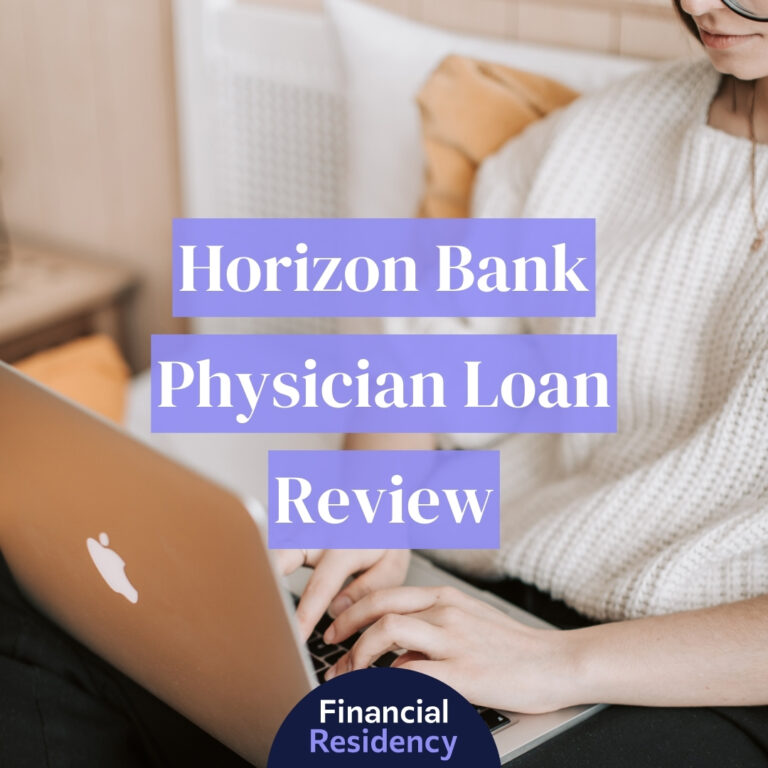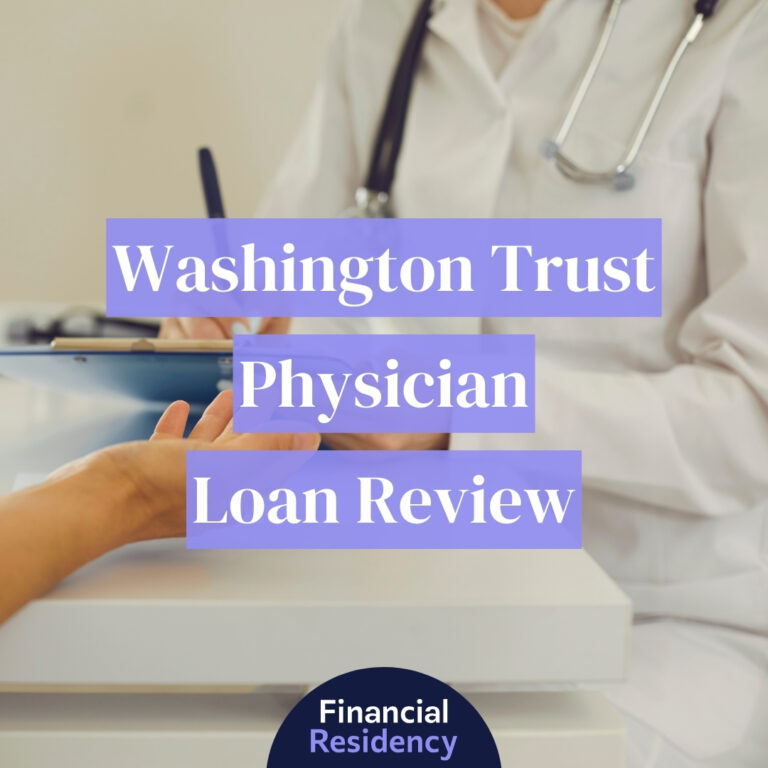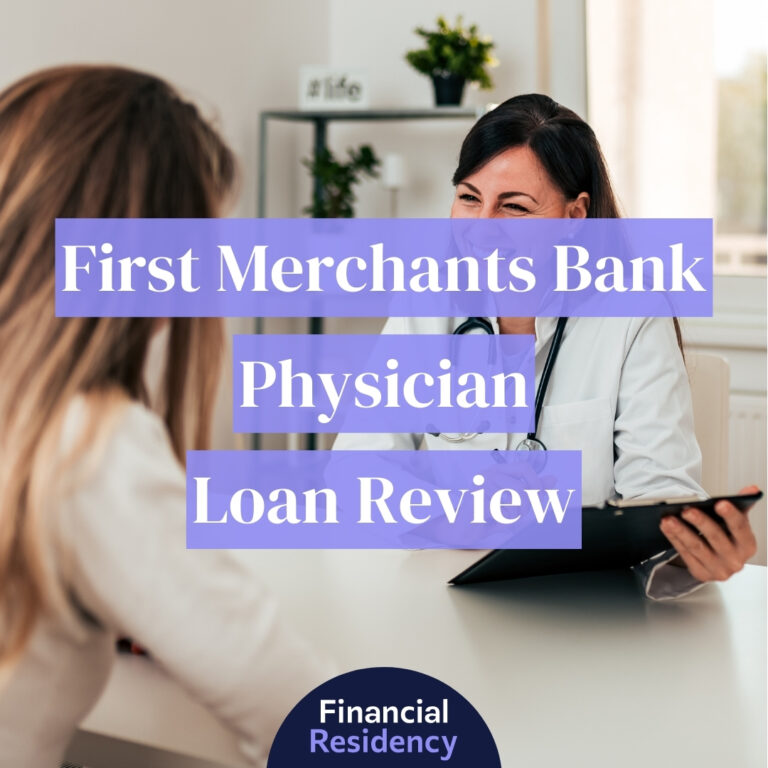Are you fantasizing about purchasing your dream home or hoping to reduce your monthly payments with a strategic refinance?
A physician loan in West Virginia may be exactly what the doctor ordered.
With just over 6,000 physicians living and working in The Mountain State, many of the state’s rural areas are underserved. Moving to West Virginia can give promising young and established physicians the opportunity to make a difference where it matters.
West Virginia offers its 1.75 million residents a lifestyle centered around the beautiful Appalachian mountains, but it also offers a large inventory of land and affordable areas.
From the college town of Morgantown to the capital city of Charleston, there is plenty of variety in scenery for medical professionals of all different preferences.
If you’re ready to take the leap and become a homeowner, then start with our short list of the best physician loans in West Virginia.
11 Best West Virginia Physician Home Loan Lenders
Here are the top physician mortgage loan lenders in WV:
- BMO Bank
- Bank of America
- Citizens Bank
- Evolve Bank & Trust
- First Horizon Bank
- First National Bank
- Flagstar Bank
- Huntington Bank
- KeyBank
- TD Bank
- US Bank
Discover The Best Lenders in West Virginia Answer just a few questions about your career, where you're buying, and how much you want to borrow. Our service will then show you the exact programs you're eligible for from vetted physician loan specialists who will guide you through every step of the process – obligation-free!
1. BMO Bank
- BBB Grade: A+
- JD Power Score: 805
BMO Bank extends its physician loan program to medical doctors (MD), doctors of osteopathic medicine (DO), doctors of dental surgery (DDS), and doctors of dental medicine (DMD), including licensed residents still in training.
The program doesn’t have age restrictions, but medical professionals who have been practicing for 10 or more years will be limited to 90% financing regardless of the loan limit.
Early-career medical professionals may qualify for 95% financing on loans up to $1.5 million or 90% financing on loans up to $2 million. Both financing options exclude private mortgage insurance (PMI).
Loans may be used to purchase or refinance a 1-2 unit property, single-family home, townhouse, or condominium. Rate/term and cash-out refinancing options are available to qualified borrowers with sufficient equity in their homes.
BMO Bank underwriters will be lenient on student loan debt when calculating debt-to-income (DTI) ratios. They will also work with borrowers who have yet to begin their new jobs by accepting residency agreements and employment contracts that begin within 90 days of closing.
Borrowers who open a BMO Bank checking or savings account can qualify for a $500 closing cost discount.
Learn More:
2. Bank of America
- BBB Grade: A+
- JD Power Score: 791
Bank of America offers specialty doctor loans for licensed and practiced medical professionals with an existing relationship with the lender through a checking or savings account. The account can be opened at the time of application.
Compared to BMO Bank, Bank of America’s physician loan program is more inclusive of other medical professionals. The following medical designations, including residents, are eligible:
- MD
- DDS
- DO
- DMD
- OD
However, research clinicians and professors aren’t included.
The loan program doesn’t impose an age limit, but all applicants must be actively practicing to qualify. Medical students and doctors who are set to begin a new employment contract can qualify as long as they will start to work within 90 days of closing.
Applicants will also be required to demonstrate sufficient cash reserves to cover all debt obligations between closing and beginning employment. Borrowers may be asked to have between 4 and 6 months of reserves, depending on the loan amount.
Student loan debt is often excluded from DTI calculations, but it will be decided on a case-by-case basis
Borrowers may qualify for loans up to $850,000 with a 3% down payment, loans up to $1 million with a 5% down payment, or loans up to $2 million with a 15% down payment.
Learn More:
3. Citizens Bank
- BBB Grade: A+
- JD Power Score: 818
Citizens Bank opens its physician loan program to residents, medical doctors (MD), doctors of osteopathic medicine (DO), doctors of dental surgery (DDS), and doctors of dental medicine (DMD) within the first 10 years of their careers.
The program provides the following financing options without PMI requirements:
- 5% on loans up to $850,000
- 10% on loans up to $1 million
- 15% on loans up to $1.5 million
Citizens Bank’s physician loan program has the benefit of providing construction loans in addition to purchase and refinancing options.
Student loan debt may be excluded if payments are deferred for a year or more after closing. Borrowers on income-driven repayment plans may use their actual monthly payment amount to calculate DTI, which can make it easier to qualify than using the entire loan balance.
Borrowers may be eligible for additional discounts if they hold a Citizens Bank checking or savings account.
Learn More:
4. Evolve Bank & Trust
- BBB Grade: B
- JD Power Score: N/A
Evolve Bank & Trust is our first lender on this list to include medical professionals outside of medical doctors and dentists. It provides financing to the following medical designations through its Medical Professional Program:
- MD
- DO
- DDS
- DMD
- PA
- NP
- DVM
- CRNA
- DC
- OD
- DPM
- PharmD/RPh
- Clinical Nurse Specialists
Borrowers must be within 10 years of completing residency to qualify.
Qualified borrowers can secure 100% financing on loans up to $1 million, but larger loan amounts require larger down payments. Loans up to $1.25 million require at least a 5% down payment while loans up to $1.5 million require a 10% down payment. Loans up to $2 million require a 15% down payment. None of the financing options through this loan program require PMI.
The lender will require minimum cash reserves, but the required amount will depend on the borrower’s approved loan amount. It will however be more flexible in other areas.
For example, gift funds can be applied to the down payment or cash reserve requirements. Non-occupant co signers may also be used for borrowers who don’t have a strong credit background.
It will also be flexible when calculating debt-to-include ratios and provide discounts on closing costs.
Learn More:
5. First Horizon Bank
- BBB Grade: A+
- JD Power Score: 825
First Horizon Bank offers medical private banking solutions to medical professionals with an MD, DO, OMS, or DPM degree. Unlike many physician loan programs, it is not open to medical residents.
Despite its exclusion of medical residents, First Horizon Bank is more flexible on credit score requirements than other lenders––working with scores as low as 670.
The program has a maximum loan amount of $2.5 million. Borrowers may qualify for 100% financing on loans up to $1 million, 95% financing on loans up to $2 million, or 90% financing on loans up to the maximum amount.
Student loans deferred for more than 12 months won’t be included in DTI calculations.
Learn More:
6. First National Bank
- BBB Grade: A+
- JD Power Score: 801
First National Bank works with medical professionals who hold an MD, DO, DDS., DVM, DMD, or DPM degree. Interns, residents, and fellows are also included.
Borrowers may qualify for up to $1.25 million to purchase or refinance their dream home with no money down, but up to $2 million is available with a low down payment.
PMI is not required, regardless of the down payment amount. Fixed and adjustable-rate mortgage products are available.
Unlike many physician loan programs, First National Bank provides financing for the purchase of a primary residence, vacation home, or new construction. Eligible property types include single-family residences, townhomes, and condominiums.
Learn More:
7. Flagstar Bank
- BBB Grade: NR
- JD Power Score: 781
Flagstar Bank is an unconventional physician loan compared to other lenders on this list because it includes more than medical professionals. Borrowers within the first 10 years of the following professions may qualify for special financing options:
- Medical Resident (Educational License)
- Medical Doctor (MD)
- Doctor of Dental Surgery (DDS)
- Doctor of Dental Medicine (DMD)
- Doctor of Optometry (OD)
- Doctor of Ophthalmology (MD)
- Doctor of Pharmacy (PharmD, RPh)
- Doctor of Podiatric Medicine (DPM)
- Doctor of Osteopathy (DO)
- Physician Assistant (PA)
- Registered Nurse (RN)
- Nurse Anesthetist (CRNA)
- Nurse Practitioner (NP)
- Clinical Nurse Specialist
- ATP Pilot
- Certified Public Accountant (CPA)
- Attorney (JD)
- Veterinarian (DVM)
Flagstar Bank will provide 100% financing on loans up to $1 million to borrowers with a 720 minimum credit score. Other low-down payment financing options are available on loans up to $1.25 million.
Borrowers must be first-time home buyers or they must have not purchased a home within the last three years. Loans may be used to purchase or rate/term refinance a single-family home, townhouse, or primary residence in a planned unit development.
Unlike other providers on this list, Flagstar Bank exclusively offers adjustable-rate mortgages. Flagstar Bank offers 5/6, 7/6, and 10/6 adjustable-rate mortgages, which means there will be an initial fixed interest rate of 60, 84, or 120 months before the interest rate resets to the current market conditions.
Learn More:
8. Huntington Bank
- BBB Grade: A+
- JD Power Score: 821
Huntington Bank’s physician mortgage loans are open to medical professionals with an MD, DO, DDS, DMD, or DVM degree. In addition to a qualifying degree, borrowers must also demonstrate proof of sufficient income and cash reserves.
Sufficient income can be proved through pay stubs, tax returns, or an active employment contract. Cash reserves can be proved through bank statements. The minimum reserve requirements depend on the loan amount.
Qualified medical professionals can borrow up to $1 million with 100% financing, up to $1.25 million with 95% financing, and up to $2 million with 90% financing. PMI is not required.
Loans may be used to purchase or refinance a primary residence. Rate/term and cash-out refinancing options are available, but cash-out refinances are limited to $50,000 in actual cash. All other funds must be used to pay off debt.
Learn More:
9. KeyBank
- BBB Grade: A+
- JD Power Score: 777
KeyBank’s Medical Professional Mortgage provides personalized service and generous loans to practicing interns, residents, fellows, clinical professors, researchers, dentists, and doctors with an MD, DO, DPM, DDS, or DMD degree.
The program will provide up to $3.5 million with 95% financing for the purchase or refinance of a primary residence or second home. PMI is not required. Eligible property types include attached or detached single-family homes, condominiums, and townhouses.
The loan amount and down payment options extended are subject to credit approval. Fixed and variable interest rate products are available, which gives borrowers the flexibility to choose the monthly payment option that fits their long-term financial goals.
Learn More:
10. TD Bank
- BBB Grade: A+
- JD Power Score: 837
TD Bank’s Medical Professional Mortgage Program is open to licensed residents, fellows, practicing physicians, and self-employed medical professionals with the following degrees:
- MD
- DO
- DPM
- DDS
- DMD
- OMS
Loans may be used to purchase or refinance a single-family residence, condominium, or property in a planned unit development. In select markets, properties in co-op buildings may be considered.
Borrowers may be secured 100% financing on loans up to $1 million, but larger loans will require a small down payment.
Loans up to $1.5 million can be secured with just a 5% down payment and loans up to $2 million require a 10.01% down payment, both of which are significantly less burdensome than conventional mortgages.
Like other physician loan programs, TD Bank does not charge private mortgage insurance.
The lender isn’t transparent about its approach to debt-to-income ratio calculations, but it advertises that it will be flexible with student loan debt. It will also accept employment contracts as income verification, even for upcoming residents who haven’t started working yet.
Learn More:
11. U.S. Bank
- BBB Grade: A-
- JD Power Score: 820
U.S. Bank offers physician loan financing to residents, fellows, MDs, and DOs with a 710 minimum credit score. It will extend a maximum of $2.5 million without PMI to qualifying borrowers.
It offers the following down payment options:
- 5% down on loans up to $1 million
- 10% down on loans up to $1.5 million
- 15% down on loans up to $2 million
Borrowers can open a platinum checking account for additional discounts, such as a 0.25% lender credit up to $1,000. The lender credit could further reduce the upfront costs of purchasing or refinancing a home.
U.S. Bank is lenient on student loan debt, but it doesn’t completely exclude it. Borrowers on income-driven repayment plans can use their actual monthly payment amount. Borrowers on deferment will use 2% of their total loan balance.
Learn More:
How Physician Mortgage Loans Work in West Virginia
Physician mortgage loans in West Virginia work by creating opportunities to purchase or refinance their homes when they would otherwise be disqualified from conventional mortgage options.
Like conventional loans, physician loans can be structured as adjustable or fixed-rate mortgages. However, some lenders, like Flagstar Bank, only offer adjustable-rate mortgages, so it’s important to consider your overall budget carefully if your monthly payments could potentially increase in the future.
Flexibility with Loan Limits
In the United States, conforming conventional loans are capped at Freddie Mac and Fannie Mae’s county loan limits. In West Virginia, this amount is $548,200 for a single-family residence in all counties except Jefferson County. All loans exceeding this amount are classified as jumbo loans.
Because physician loans will extend millions of dollars to qualified borrowers, by definition, physician loans are often jumbo loans.
With the housing market as competitive as it is, having more pricing flexibility can help physicians purchase their dream homes.
However, large loan amounts carry the additional liability of high mortgage payments, so it’s important to be honest about your financial situation as you navigate the home-buying process.
Reduced Down Payment Requirements
Physician mortgages have reduced down payment requirements. While a conventional loan requires anywhere from 3–20%, physician loans in West Virginia will accept 0–15% depending on the loan amount.
No Private Mortgage Insurance
Conventional loans also require private mortgage insurance (PMI) when borrowers hold less than 20% equity in their homes. Physician loans waive this requirement, regardless of the down payment amount.
Flexibility with Debt, Work, & Income Requirements
Mortgages are one of the more difficult loan programs to access. As such, underwriters often have stringent debt, work history, and income requirements to verify before they’re willing to approve the loan.
Physician loan underwriters are willing to work with borrowers who have not yet started their jobs or have been able to build up the work history other programs require by accepting future-dated employment contracts.
An employment contract clearly outlines expected earning potential and start date, so it’s generally acceptable collateral.
Student loan debt is another major barrier to loan approval. While every loan program is different, many will exclude deferred student loan debt or use a portion of the total balance when calculating DTI ratios.
Pros and Cons
All loan programs have strengths and weaknesses; physician mortgages are no different. It’s important to be thoughtful about these points as you navigate the home-buying process.
We invite you to consider the following pros and cons of physician loans in West Virginia:
Pros
- No PMI: Physician loan programs don’t require private mortgage insurance, which can save borrowers thousands of dollars in fees throughout the loan term.
- Forgiving about student loan debt: Physician loan officers understand that medical school is a significant expense. As such, underwriters are often willing to exclude student loan debt from debt-to-income ratio calculations.
- Low or no down payment: Physician mortgages provide financing for higher loan-to-values than conventional mortgages. It’s typical to see 85–100% financing options.
- Lenient on work history: Because new physicians and residents have spent their years in medical school training for the job, they often need more work history to qualify for a conventional mortgage. Physician loans will accept employment contracts, so doctors can settle into their homes before starting their new jobs.
- Can be used to refinance: Physician loans aren’t only for purchasing a new home. Many programs offer refinancing options for borrowers who already own their homes.
- Experienced loan officers: Physician lenders are familiar with the challenges healthcare professionals face when navigating the home-buying process, which allows them to provide flexible scheduling and wisdom.
Cons
- Higher credit score: Physician mortgage loans require a higher credit score than conventional loans and government-backed mortgage programs.
- No standard eligibility requirements: Every lender has its own set of eligible medical degrees and property requirements, which can make it confusing when you’re comparing programs.
- Higher interest rates: Physician mortgage programs often have higher interest rates to make up for the more lenient loan terms and reduced down payment requirements.
- Residence restrictions: Physician mortgage loans can’t be used for all properties. Financing is usually restricted to primary residences, but each lender will have a list of eligible property types
- Jumbo loans: Because physician mortgages aren’t conforming loans, lenders can extend large sums of money to qualified borrowers. With that said it can be easier to borrow outside your means if you’re not careful.
Frequently Asked Questions
What is a health professional shortage area?
A health professional shortage area (HPSA) is a geographic region where the population does not have a sufficient volume of medical professionals to meet its healthcare needs.
West Virginia has 55 counties; 31 of these counties have a shortage everywhere and 22 of these counties have a partial shortage. Only one WV county does not have a shortage of healthcare professionals.
What is an adjustable-rate mortgage?
An adjustable-rate mortgage (ARMs) is a type of loan program that starts with a competitive introductory fixed rate of interest. At some point during the loan term, the introductory rate expires and the interest rate resets to a new rate determined by the loan’s index.
ARMs can be a gamble for borrowers on a tight budget because the monthly payment will fluctuate from year to year.
What is the average physician loan amount?
The average physician loan amount is very personal and varies considerably depending on the situation. Most lenders provide at least $750,000 for the purchase or refinance of a primary residence, but some programs will extend as much as $3.5 million.
Borrowers can get preapproved to have a better idea of the maximum loan amount they can qualify for.
What should your credit score be to get the maximum physician loan amount?
You should have a credit score of around 700–710 to qualify for the maximum physician loan amount offered by a lender. Every lender has a different maximum loan amount it extends through its physician loan program, but every borrower will be limited to a specific amount based on their credit approval.
The best way to ensure you have access to the maximum loan amount is to work on building an excellent credit history and negotiating a job with a competitive base salary package.
How do you lower the interest rate for a physician loan?
You can lower the interest rate for a physician loan by putting in a larger down payment and prepaying future month’s payments. Interest rates are set based on a variety of factors, including credit approval, geographic location, property type, and loan amount.
You can discuss your options with your loan officer or shop around for various programs with a mortgage broker.
Who is a Physician Loan in West Virginia Best For?
Getting stuck in analysis paralysis can prevent interested buyers from choosing the mortgage option that works best for them. Seeing examples of other people, especially medical professionals, who have benefited from physician loans can get these people unstuck.
We’ve prepared a few key example scenarios that are often a good fit for physician loans in West Virginia to help you decide if it’s the right mortgage option for your needs.
1. Dentists and primary care physicians running a private practice
Operating a private practice is a long-term investment with substantial upfront costs. Taking money out of the business could have consequences for the timeline of its growth and expansion, which can have a ripple effect on the financial situation of its stakeholders.
Physician loan programs allow private practice owners, especially dentists, primary care providers, and veterinarians, to keep money within the business without sacrificing their goals of owning real estate or purchasing their dream home.
This feat is largely possible because physician loan programs have lower down payment requirements than conventional mortgages.
2. Pharmacists with significant student loan debt
While not all physician loan programs include pharmacists, some do. Like medical doctors, pharmacists have to complete years of extensive on-the-job training before they can enjoy an independent career and their full earning potential.
Graduating school with high student loan debt can feel like a shackle around the ankle for these professionals because conventional mortgage products have a certain DTI threshold to qualify.
Physician loan programs allow pharmacists and other medical professionals with significant student loan debt to pursue homeownership by making special considerations.
For example, borrowers on state loan repayment programs may have their actual monthly payment used when calculating DTI, rather than their entire loan balance.
3. Nurse Practitioners and Physician Assistants looking to grow their investments
Dedicating funds to investing is a commitment that requires ongoing contribution, which can often take away from the ability to save for a down payment.
Physician loan programs allow highly qualified medical professionals, such as nurse practitioners and physician assistants, to purchase a home and build equity without sacrificing other long-term wealth-planning goals.
Physician loan programs create this flexibility not only by reducing the down payment requirement but also by eliminating private mortgage insurance.
PMI can increase mortgage payments by hundreds of dollars per month, especially for high loan amounts, which is another siphon on investment potential.
4. Full-time medical doctors relocating for a new job
Early-career medical professionals often have to move to where their programs and employment opportunities are, which can be both expensive and destabilizing.
Physician loan programs can reduce these burdens by allowing medical professionals to purchase a home and set down roots for their families.
Physician mortgage lenders will work with borrowers who can demonstrate proof of earning potential through a future-dated employment contract. There are a few stipulations for employment contracts, though.
For example, an acceptable employment contract must clearly demonstrate a start date within 90 days of closing and a qualifying base salary.
Moving to a Different State?
Click on the state you are moving to and get the best physician mortgage loan lenders in that state:
Learn more about physician home loans.




